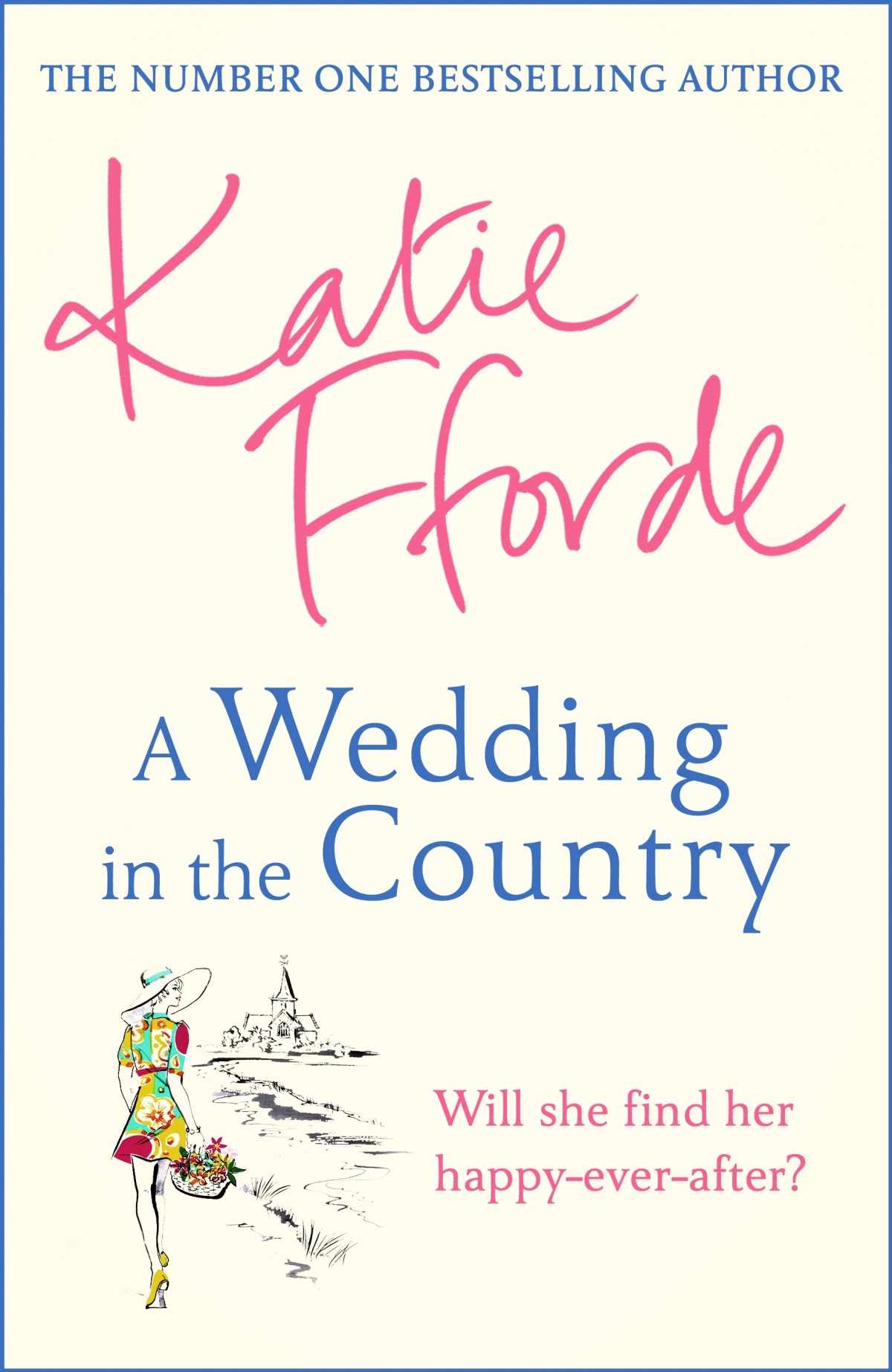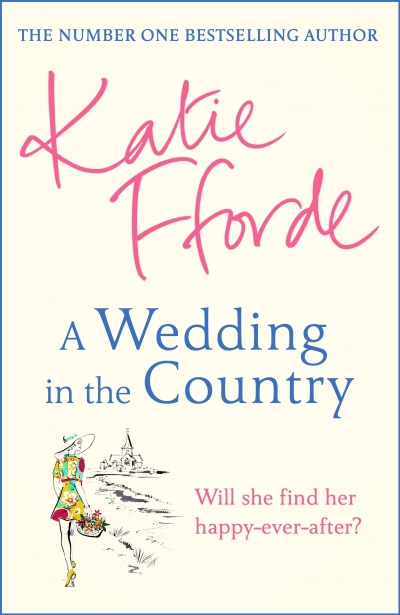Information about the book
Romance, friendship, joy and the possibility of happy endings: the heartwarming new novel by number one bestseller, Katie Fforde.
Lizzie has just arrived in London, determined to make the best of her new life.
Her mother may be keen that she should have a nice wedding in the country to a Suitable Man chosen by her. And Lizzie may be going to cookery school to help her become a Good Wife.
But she definitely wants to have some fun first.
It is 1963 and London is beginning to swing as Lizzie cuts her hair, buys a new dress with a fashionably short hemline, and moves in with two of her best friends, one of whom lives in a grand but rundown house in Belgravia which has plenty of room for a lodger.
Soon Lizzie's life is so exciting that she has forgotten all about her mother's marriage plans for her.
All she can think about is that the young man she is falling in love with appears to be engaged to someone else ...
EXTRACT:
Chapter One
London, Spring 1963
‘Garlic should be the same size as an ’azelnut in its
shell,’ said Mme Wilson in her strong French accent.
She was looking at a collection of pale, curved
shapes on a plate in front of her that could have
been toenail clippings given both their appearance
and Mme Wilson’s look of utter disgust.
Lizzie regarded the despised items. She had no
experience of garlic. It was one of the things her
father regarded as ‘foreign muck’ and so had no
place in her family kitchen. And yet just then, Lizzie
was grateful for her father’s fondness for ‘good plain
cooking’, for without it she wouldn’t have been sent
to London to do a cookery course.
So here she was, in a rather cramped basement
in Pimlico, with nine other girls, being lectured by
a Frenchwoman who, if first impressions were
anything to go by, was fairly terrifying. Almost
everyone was wearing a white buttoned-up overall
covered by a white bibbed apron, as specified in the
prospectus.
Mme Wilson had moved on to olive oil and the
outrageous fact that you had to buy it in chemist’s
shops. Lizzie gathered this meant that olive oil had
another function, apart from use as a cure for
earache. Mme Wilson seemed to despise most ingredients
available in England, and Lizzie couldn’t help
wondering how she managed to live here when it
was obviously a culinary desert.
She surreptitiously studied her fellow pupils,
hop ing that at least one of them would turn out to
be friendly, otherwise her time in London might be
lonely.
Most of them seemed to be very aristocratic, with
smooth white skin, their glossy hair in elegant
chignons, fat ponytails or discreetly backcombed so
it rose smoothly from their foreheads and ended in
perfect ‘flick-ups’, a style she had never managed to
achieve herself. Under their all-covering garments
glimpses of cashmere and silk could be seen. They
wore pearls, round their necks and in their ears. Lizzie
had a string of pearls, given to her by her godmother,
but they were for best, not for every day. She had to
ask her mother whenever she wanted to wear them.
One of the girls was a bit different. She had
ignored the white overall and instead wore a bluestriped
butcher’s apron over what seemed to be a
man’s dress shirt without the collar. She was wearing
black cigarette pants and round-toed shoes which
buttoned up across her instep. Her long hair (glossy,
like the other girls) was tied up into a pile on her
head. She had a thick fringe which gave her a look
of Audrey Hepburn. She was wearing pearls too,
but hers were much larger, twisted round her neck
like a rope. Lizzie suspected they were fake, and
she warmed to her. She was just as glossy and well
bred as the others and yet she wasn’t as haughty.
This girl was looking around the kitchen as if she
didn’t quite know how she’d got there.
Another girl caught Lizzie’s attention because she
was writing everything down with single-minded
attention. She sometimes asked questions and,
judging by Mme Wilson’s response, they seemed to
be the right questions. She was obviously seriously
interested in learning to cook, not filling in the time
until the next social engagement which, going by
the snippets of conversation Lizzie overheard, was
what most of the other girls were doing. When she
caught Lizzie’s eye, she smiled, shy but friendly.
Lizzie began to feel more confident.
‘Now, girls, you know it is easier to cook good
food if you are accustomed to eating it. However, I
know that many of you are not experienced in a
kitchen. You may be forbidden to enter because your
cook doesn’t like people interrupting her.’
Lizzie gulped inwardly. Her mother would hire
a cook for the evening if she had to entertain her
father’s business colleagues but she did all of the
everyday cooking herself, often helped by Lizzie.
‘Now I’m going to take you through the batterie
de cuisine. Each of you will introduce yourselves,
and then I will see if you know what each item is
for.’
There was an inward gasp of horror as the haughty
debs looked around, obviously aware of how little
they knew about kitchen equipment. Lizzie was
anxious herself. Her mother had a cooking set
consisting of a ladle, potato masher, long fork and
palette knife that hung in a set on the wall. They
had been a wedding present, Lizzie knew. If she
was asked about anything more complicated she
might well fail and draw the opprobrium of Mme
Wilson down on herself.
Yet here was an opportunity to learn everyone’s
names as well as a test and Lizzie paid attention.
The girl in the striped apron was called Alexandra
and the one who seemed to know her way round
a kitchen (she identified a garlic squeezer without
difficulty) was Meg, presumably short for Margaret.
The others were called things like Saskia, Eleanor
and Jemima. At school Lizzie’s friends had more
ordinary names: Rosemary, Anne and Jane, or
Elizabeth.
Lizzie was still wondering what it must be like
to have the same name as a duck in a Beatrix Potter
book when Mme Wilson called on her. Fortunately,
Mme Wilson was holding up a cheese grater, which
she could identify without difficulty.
After this trial-by-egg-whisk the girls were told
to get out their notebooks (Meg was ahead on this,
Lizzie spotted) and write down the recipe for
sardine pâté. After that they were to cook steak, and
for dessert, oranges with caramel.
‘Come on,’ said the tall girl who looked like
Audrey Hepburn – Alexandra – at the end of the
morning session, hurrying Meg and Lizzie out of
the kitchen. Meg had found herself doing the
washing up and Lizzie had felt obliged to help her.
‘Follow me.’
Lizzie didn’t have a better idea and she liked the
thought of getting to know this girl who didn’t seem
to care much about the rules. She herself had always
done what her parents had expected of her but it
now appeared there were options.
Alexandra obviously knew her way around
Pimlico very well. A short walk, a left-hand turn
and they were walking down a side street and into
a small café.
The windows were almost totally obscured by
condensation and the noise of the steam from the
coffee machine was loud and disconcerting. The
machine was about the same size as a car and
sounded as if it was about to explode. But as no
one seemed remotely bothered, Lizzie followed the
others inside.
_________________________________________________________________________________________________
 |
by Katie Fforde
|
_________________________________________________________________________________________________


